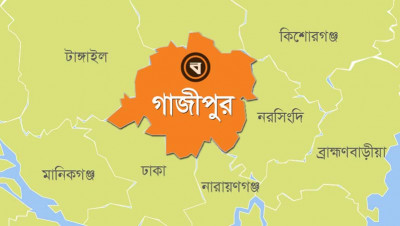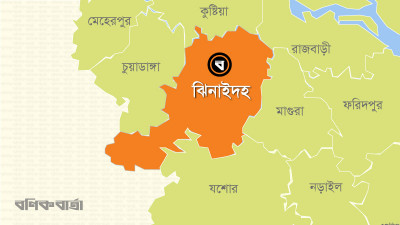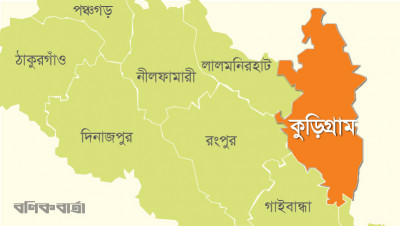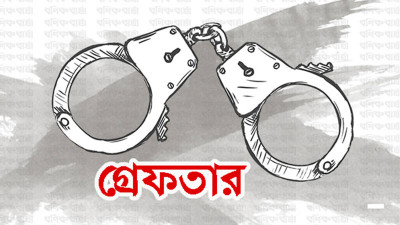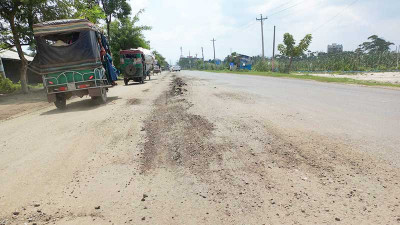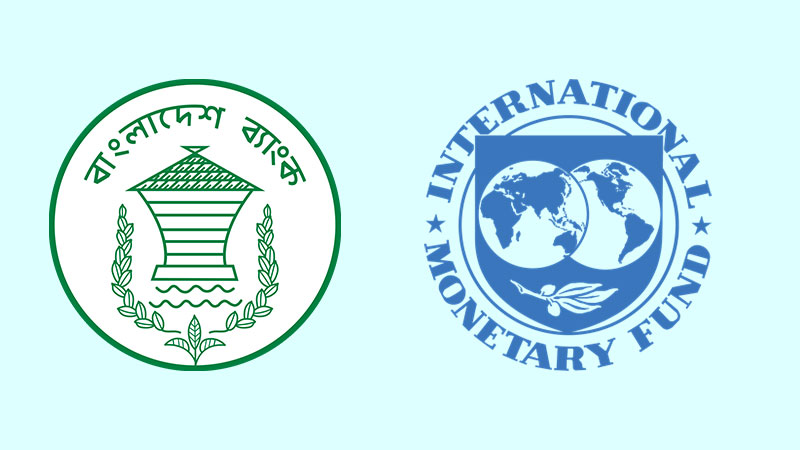 Photo: collected
Photo: collected Bangladesh
Bank (BB) started functioning as the country's full-fledged central bank with Presidential
Order number 127 of the Bangladesh Bank Order 1972. Since its inception, BB has
been viewed as an autonomous institution overseeing the country's economic
sector. However, the International Monetary Fund (IMF) said this autonomous
institution functions under government control; no actual autonomy is displayed
by them.
The
IMF mentioned that Sections 10, 15, and 77 of the 'Bangladesh Bank Order 1972
impede the central bank's authority in taking any steps towards achieving its
objectives. Particularly, it has been observed that these provisions obstruct
the central bank from taking necessary steps towards attaining inflation
stability in the middle term. Additionally, Section 82 of the order has also
placed the central bank under government control.
According
to Section 10, the Governor has authority and control over the management of Bangladesh
Bank. The government can appoint anyone as Governor for a term of four years,
with the possibility of reappointment upon completion of their term. Section
15(1) of the order says that if the Governor or Deputy Governor engages in any
act that breaches the trust placed upon them or acts contrary to the interests
of Bangladesh Bank, the government may remove them from office.
The
Board of Directors of Bangladesh Bank plays a vital role in the policy
formulation of the country's banking sector. According to the law, the
government appointed the board members of the central bank. Section 77 of the
Bangladesh Bank Order gives the government the authority to dismiss the central
bank's board if the central bank fails to fulfil the government's obligations.
According to Section 82 (2) of the Order, Bangladesh Bank is an institution
effectively under the control of the Government of Bangladesh. The budget,
salary, and compensation of central Bank employees are also subject to
government approval.
According
to Section 38 (a) of the Bangladesh Bank Order 1972, the Bangladesh Bank is
accountable to the Parliament. Although Governors have faced questions from
Parliament in a decade, there appears to be no such accountability. Based on a
review of legal constraints, the IMF suggests, that granting autonomy to the
Bangladesh Bank is desirable due to the urgent need for policy coherence.
Providing
strategic advice for Bangladesh Bank, the IMF released a report titled
"Technical Assistance Report" on June 28th, detailing observations
from a visit by a delegation from the South Asia Regional Training and
Technical Assistance Center (SARTTAC) of the IMF on August 13-17, 2023. This
report examines the legal limitations on the autonomy of the central bank. The
report recommends several enhancements based on the current operational methods
of Bangladesh Bank.
Economists
state that the autonomy and governance given to Bangladesh Bank under the law
have been constrained only in formality. Despite surpassing the central bank, many
important decisions are now being made for the country's banks.
Dr.
Wahiduddin Mahmud, an eminent economist who served as a Director of Bangladesh
Bank for 16 long years (1993-2009) when asked about the autonomy of
Bangladesh Bank opined to Bonik Barta, "Discipline and accountability in
the current governance structure are not solely a matter of law. There is
considerable doubt about the extent to which existing laws are being
implemented. Law is certainly necessary. However, those in positions of authority
interpret and apply the law based on their mindset."
Wahiduddin
Mahmud added, "Approving the establishment of private banks in the country
for over a decade without creating a legal framework was a significant mistake.
Subsequently, many of these banks deteriorated. In response, stringent measures
were taken from 2002 onwards. Seventy directors of private banks were compelled
to refund loans otherwise they were removed from their positions. During that
time, various legal actions were also taken, including detailed scrutiny of
bank loans and the terms of directors. The strict regulations of the central
bank forced private banks to move in the right direction. But in the last
decade and a half, the banking sector has gone to the worst."
In
September 2018, the IMF also provided several recommendations after evaluating
Bangladesh Bank's operations. The IMF's report mentioned that during
discussions with the delegation from the South Asia Regional Training and
Technical Assistance Center (SARTTAC), Bangladesh Bank officials ensured that
there had been no changes in governance, transparency, and accountability since
the evaluation in September 2018. Although the Bangladesh Bank Order was
amended in 2003, the institution's constitutional autonomy has remained limited.
According to Articles 10, 15, and 77 of the Bangladesh Bank Order, the
government has the authority to restrict the operations of Bangladesh Bank.
Additionally, according to Article 82 of this order, Bangladesh Bank remains
under the control of the Bangladesh government.
According
to the report, it is necessary to review the provisions of the Bangladesh Bank
order regarding the financial process for lending to priority sectors (Rural
Credit Fund, Industrial Credit Fund, Export Credit Fund). Such activities of a
quasi-financial nature complicate liquidity management and are inconsistent
with the new monetary system as they may hamper the propagation of monetary
policy. Also, any subsidies that may be associated with these schemes can
better be managed through financial accounts.
The
IMF said the coexistence of three types of interest rates could create
confusion in the central bank's monetary policy. These three types of rates are
bank rate, policy rate, and 'smart' (in which 'smart' interest has been cancelled
due to market-based interest rates). The bank rate is used for various
financial transactions of Bangladesh Bank as per Article 21 of the Bangladesh
Bank Ordinance. It also serves as the basis for penalties related to Cash
Reserve Ratio (CRR) liquidity. The policy rate is part of the new monetary
policy. On the other hand, 'smart' was introduced during the formulation of a
new monetary policy. The central bank's decision-making on monetary policy has
been complicated by the existence of such rates in official work.
Dr.
Salehuddin Ahmed thinks that the central bank has enough legal independence
even if it is not like the Bank of England. But that law is not being
implemented in practice.
The
former Governor of Bangladesh Bank also said to Bonik Barta, "Many
decisions of Bangladesh Bank are changing on the request of the
government." We are seeing a reflection of that in the process of bank
consolidation. The central bank is allocating the loan amount without question that
the government wants from the banking sector. However, there is no precedent of
any governor being removed for not listening to the government.
The
Bangladesh Bank is mandated to be accountable to the National Parliament
according to law. However, over a long period, such accountability has not been
visibly apparent. When asked why such accountability has not been effectively
demonstrated, Dr. Salehuddin Ahmed said, "During my tenure as Governor, I
attended parliamentary standing committees on numerous occasions. At that time,
there was sufficient diligence in the functioning of these committees. However,
currently, there are questions about the activities of these committees. If the
Governor were compelled to be accountable to Parliament regarding
irregularities and malpractices in bank accounts, the country would
benefit."
In
the field of autonomy, amendments have been recommended regarding prohibitions
in the IMF report. The report states that it is necessary to ensure effective
autonomy for Bangladesh Bank. Although it operates autonomously in practice,
certain legal provisions create uncertainties in its economic policy
management, which can adversely affect long-term credibility among stakeholders
in the central bank. Therefore, amendments to the provisions of the Bangladesh
Bank Order are necessary.
The
IMF believes that the accountability framework of the Bangladesh Bank should
also be enhanced. It states that the Bangladesh Bank should be accountable to
Parliament. However, the absence of primary objectives in its economic policy
has complicated the integrity and accountability of Bangladesh Bank. Once the
primary objective of monetary policy is clearly defined, Bangladesh Bank must
adhere to the provisions of accountability included in the Bangladesh Bank
Order. In addition, the IMF suggests that the direct provision of loans under
advance authorization should be removed from the scope of the Bangladesh Bank
to ensure integrity.
The
report suggests that the policy rate should be considered as the official rate
for Bangladesh Bank. Having a single official rate would simplify economic
management and align it more coherently with the central bank's mandate. Until
such reforms are realized, the role of bank rates should be emphasized with a
new policy rate.
In
this regard, economist Dr. Ahsan H. Mansur said, "Even though it is in the
law, if 'leadership' does not have independence, then no organization can enjoy
autonomy. There is no defined criterion for the appointment of the Governor of
Bangladesh Bank. The government can appoint anyone to the position of Governor
here. The issue of autonomy goes beyond legal frameworks. While there may be
some legal constraints, the bigger constraint, in our view, is how the
government perceives it. Whatever is said, in a country like Bangladesh, a
Governor cannot remain in office if the government does not want it."

